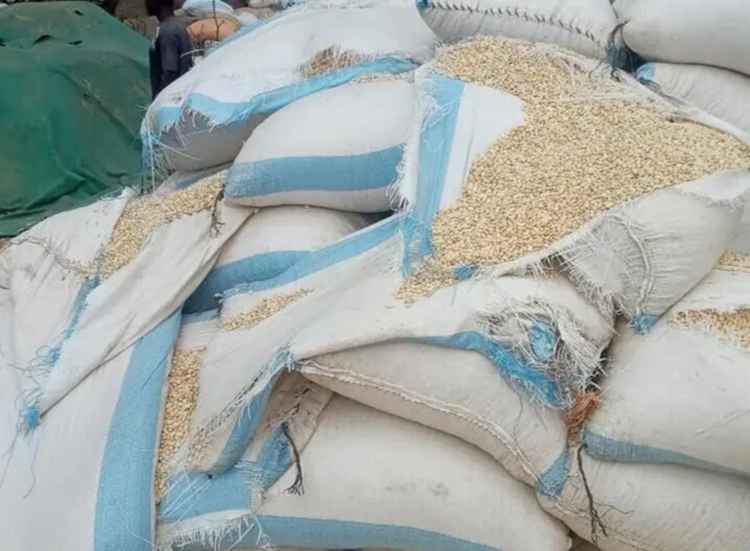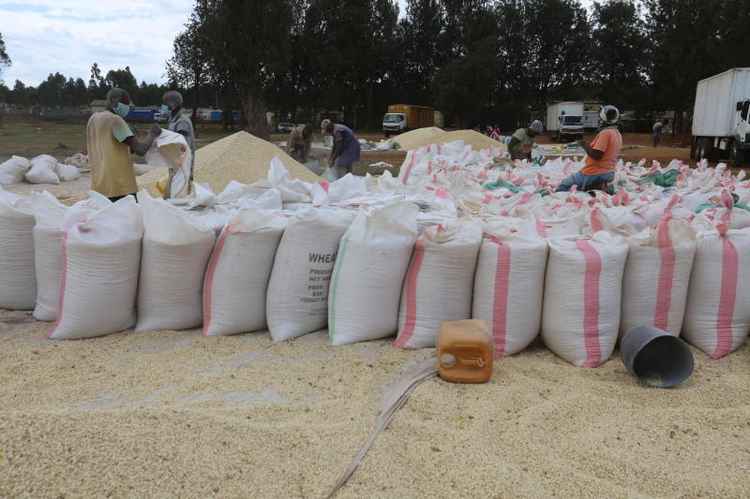Aflatoxins are not a new discovery to Zambia, we examine the impact of aflatoxins on health, recent contamination incidents in Zambia, and best practices to prevent the spread of these toxic compounds.
Aflatoxin Contamination Crisis in Zambia
In recent months, Zambia has been grappling with a critical issue: aflatoxin contamination in food products. These harmful toxins, produced by certain fungi, have been detected in maize meal, a staple food in Zambia. This crisis is compounded by a severe food security situation, driven by a debilitating drought. Notably, over 400 dogs have died after consuming maize-based dog food suspected of being contaminated with aflatoxins. This article delves into the health impacts of aflatoxins, food safety in Zambia, aflatoxins in Zambia and best practices for preventing contamination.
What Are Aflatoxins?
Aflatoxins are toxic compounds produced by the Aspergillus fungi, which can infest crops such as peanuts and maize. These toxins thrive in warm, humid environments and can significantly affect agricultural produce. In Zambia, where maize is a staple food, the risk of aflatoxin contamination is particularly high due to the climate and storage conditions. The most dangerous aflatoxins include B1, B2, G1, and G2, with aflatoxin B1 being the most prevalent and toxic.

Health Impacts of Aflatoxins
Exposure to aflatoxins poses severe health risks. Chronic consumption of aflatoxin-contaminated food can lead to liver damage, immune system suppression, and an increased risk of liver cancer. The World Health Organization (WHO) recognises aflatoxins as potent carcinogens, making them a significant public health concern. Acute exposure can result in liver failure and death, particularly affecting vulnerable groups such as children and individuals with pre-existing health conditions.
Aflatoxin Contamination in Zambia
The issue of aflatoxins in Zambia has recently gained widespread attention due to several alarming incidents. The discovery of aflatoxins in maize meal has prompted recalls of affected products. Reports indicate that over 400 dogs have died from aflatoxin poisoning linked to contaminated maize-based dog food. This situation has prompted an investigation into the maize supply and the identification of contaminated products.
The situation is further complicated by the ongoing food security crisis in Zambia. The recent drought has severely impacted maize production, making it crucial for the country to manage its limited maize supply carefully. The recall of contaminated maize meal could exacerbate food shortages, affecting millions of Zambians who rely on maize as a primary food source.
The problem is not new to Zambia. Previous incidents include the recall of dairy products containing peanut butter by a well-known South African brand due to high aflatoxin levels. This recall, which affected products distributed to Zambia, highlights the widespread nature of the contamination issue. Additionally, in recent years, locally-produced peanut butters in the Zambian market have also been found to contain dangerous levels of aflatoxins, further stressing the need for stringent quality control measures.

Best Practices for Preventing Aflatoxin Contamination
To mitigate the risk of aflatoxin contamination, several best practices can be adopted:
1. Proper Crop Storage: Ensuring that crops are stored in dry, well-ventilated conditions helps prevent fungal growth and aflatoxin production.
2. Routine Testing: Regular testing of food products for aflatoxins, especially maize and peanuts, is crucial for early detection and prevention of contamination.
3. Improved Agricultural Practices: Implementing good agricultural practices, such as crop rotation and using aflatoxin-resistant crop varieties, can reduce the risk of contamination.
4. Public Education: Raising awareness among farmers, food producers, and consumers about aflatoxin risks and proper handling practices is essential for preventing contamination.
5. Stricter Regulations: Enforcing strict food safety regulations and standards can help ensure that contaminated products are identified and removed from the market.
The Way Forward
The aflatoxin contamination crisis in Zambia highlights the urgent need for effective measures to protect public health and ensure food security. As investigations continue and recalls are managed, it is crucial for all stakeholders to implement preventive strategies and maintain vigilance. Addressing both the immediate risks and the underlying causes of aflatoxin contamination will help safeguard Zambia’s food supply and the health of its population.








